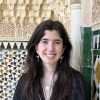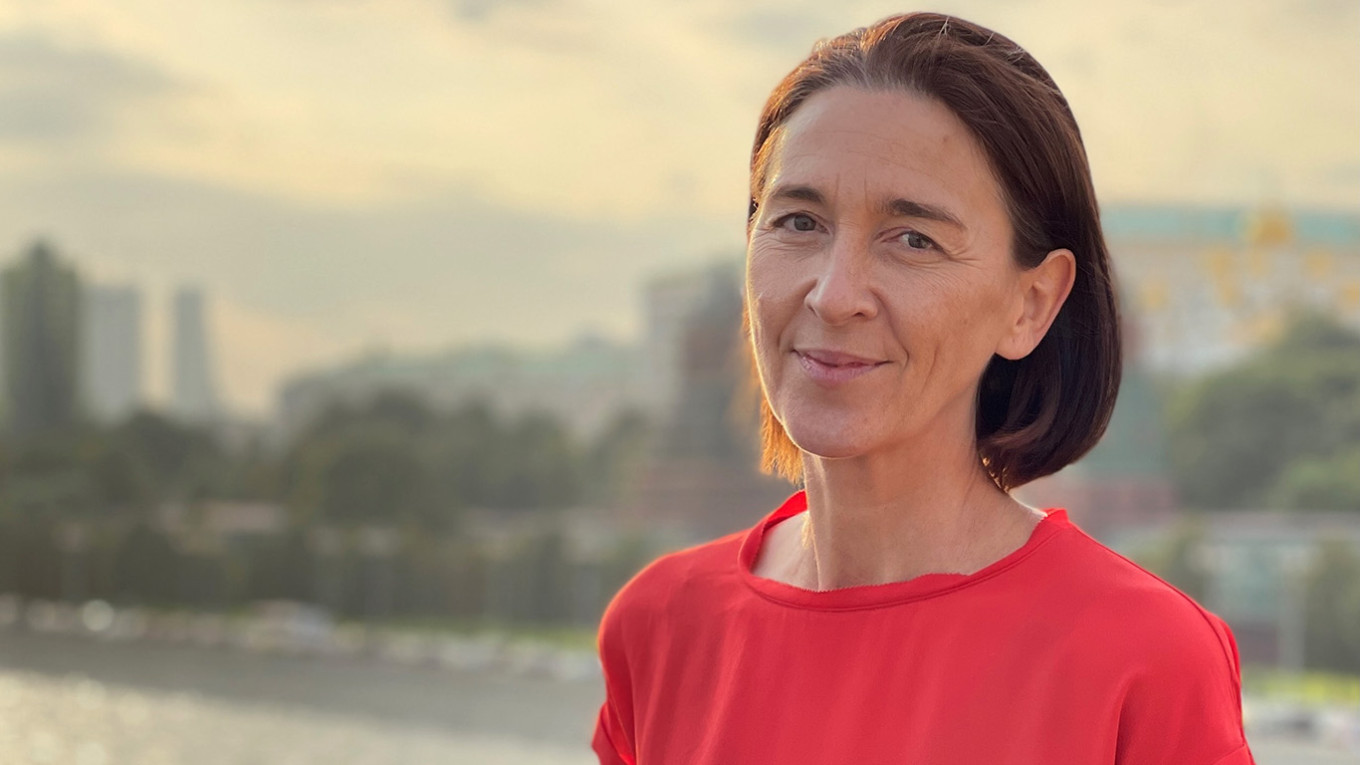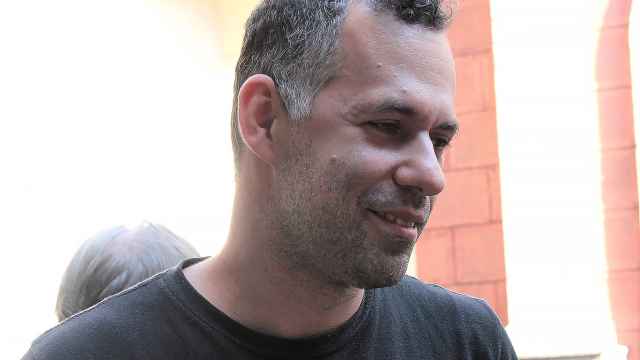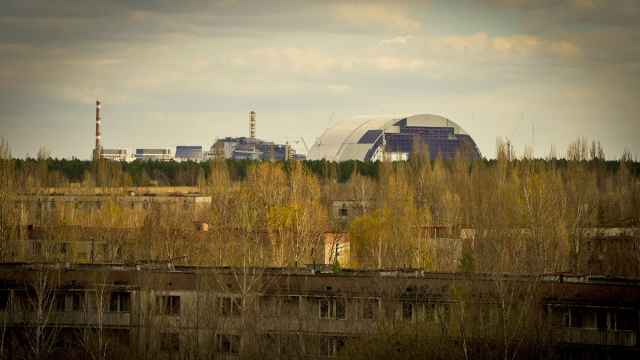Sarah Rainsford first arrived in Russia weeks after the dissolution of the Soviet Union armed with a guidebook to a country that no longer existed and a suitcase full of dehydrated meals. Today, the Moscow she touched down in as an 18-year-old no longer exists, either — its potential snuffed out through fear and control.
In her new book “Goodbye to Russia,” Rainsford, a veteran BBC correspondent, chronicles her farewells to a country she has spent decades chronicling and appreciating — first in 2021, when she was expelled from the country, and then in 2022, when Moscow launched its full-scale invasion of Ukraine.
Initially conceived as the story of Russians who stood up to the Kremlin’s ever-expanding repressions, Rainsford turned “Goodbye to Russia” into a personal account of how the signs of the Kremlin’s brutality were always there, after she went to Ukraine to report on the war firsthand.
“Goodbye to Russia” is filled with vibrant memories of being young in the fast-changing country that she first lived in during the years surrounding her time at Cambridge University — deciphering Anna Karenina behind the bar where she pulled pints for St. Petersburg’s theatrical and political stars and learning the intricacies of Russian swearing while picking mushrooms — and the warm-hearted Russians who were delighted to share their meager food with the first foreigner they had ever met.
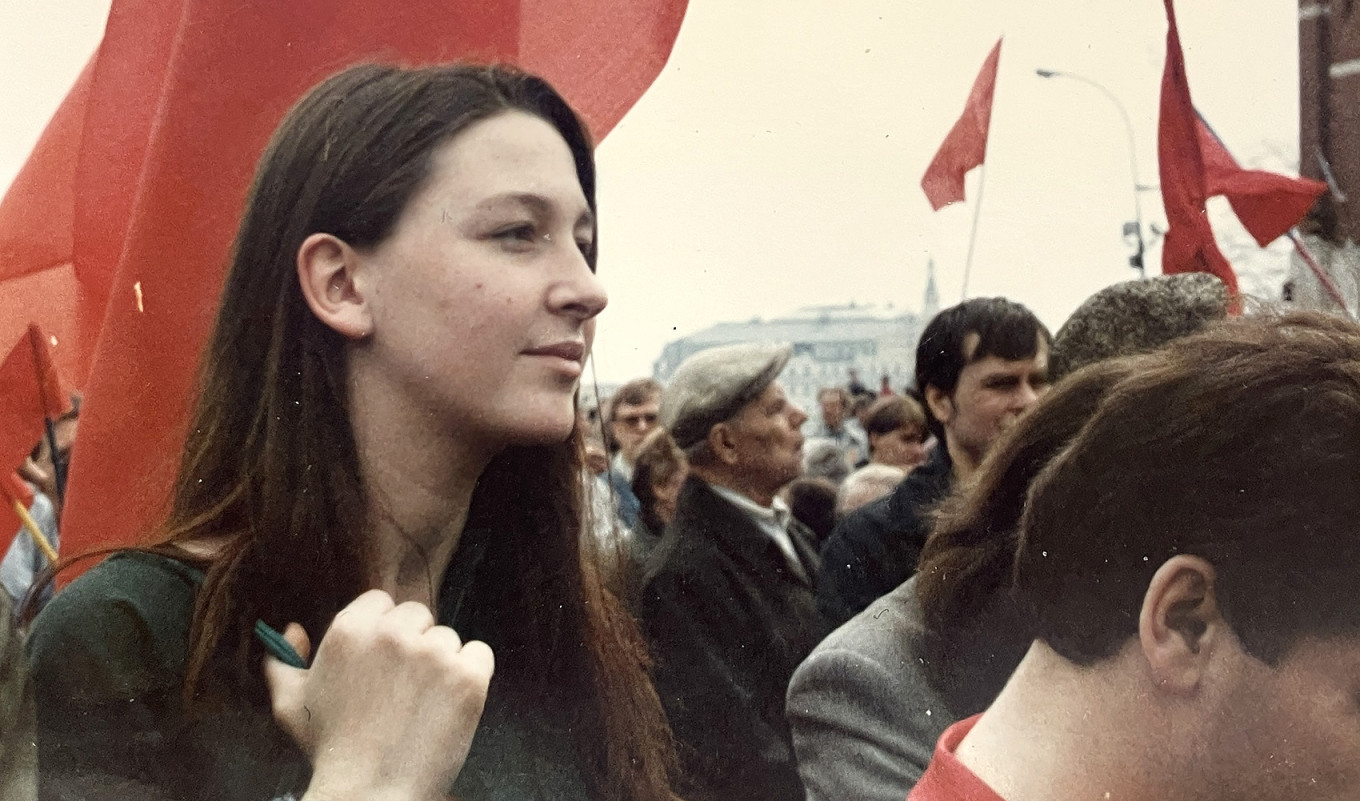
These vignettes, interspersed throughout her experiences chronicling Russia’s descent, show the richness of the country Rainsford got to know and make her 2021 expulsion all the more shocking. No official reason has been given. But state media cheered it on as a tit-for-tat retaliation for London refusing to renew the visa of a Russian journalist for the state-run TASS agency.
For months following her expulsion, she resisted taking stories about Russia, frustrated by her inability to witness the action and challenge the Kremlin’s narrative from the ground.
“People would tell me it was a ‘badge of honor’ … At first that niggled, because I still felt the loss,” she wrote of the reaction to her expulsion.
But since witnessing Russia’s destruction in Ukraine, there is little left of her past home that has not been tainted by the war. When Rainsford returned from her first reporting trip to the war zone, she could hardly bear to look at anything that reminded her of her life in Russia.
While Russia has never been an easy place to be a journalist, foreign correspondents generally faced fewer problems than their Russian counterparts who refused to make life easy for the Kremlin. Six journalists and contributors to the Nobel Prize-winning Novaya Gazeta have been killed since the newspaper’s foundation.
It takes little imagination to see why the Kremlin views independent journalists as a threat. Rainsford’s first day at the BBC’s Moscow bureau coincided with the Kursk submarine disaster, which she thinks taught Putin how easily journalists could undermine his image of strength. She witnessed the Dubrovka theater and Beslan school sieges as well as the aftermath of the Second Chechen War, all of which showed that the Kremlin was willing to expend its own citizens to ensure the regime’s survival, no matter the cost
But notably, she emphasized that the 2015 killing of Boris Nemtsov steps away from the red walls of the Kremlin was the point from which Russia became a darker place.
The 55-year-old politician had been a protege of Boris Yeltsin, who introduced him as “the future president of Russia.” But instead of elevating the reformist as his successor, Yeltsin anointed FSB head Putin, cementing Russia’s return to the shadows.
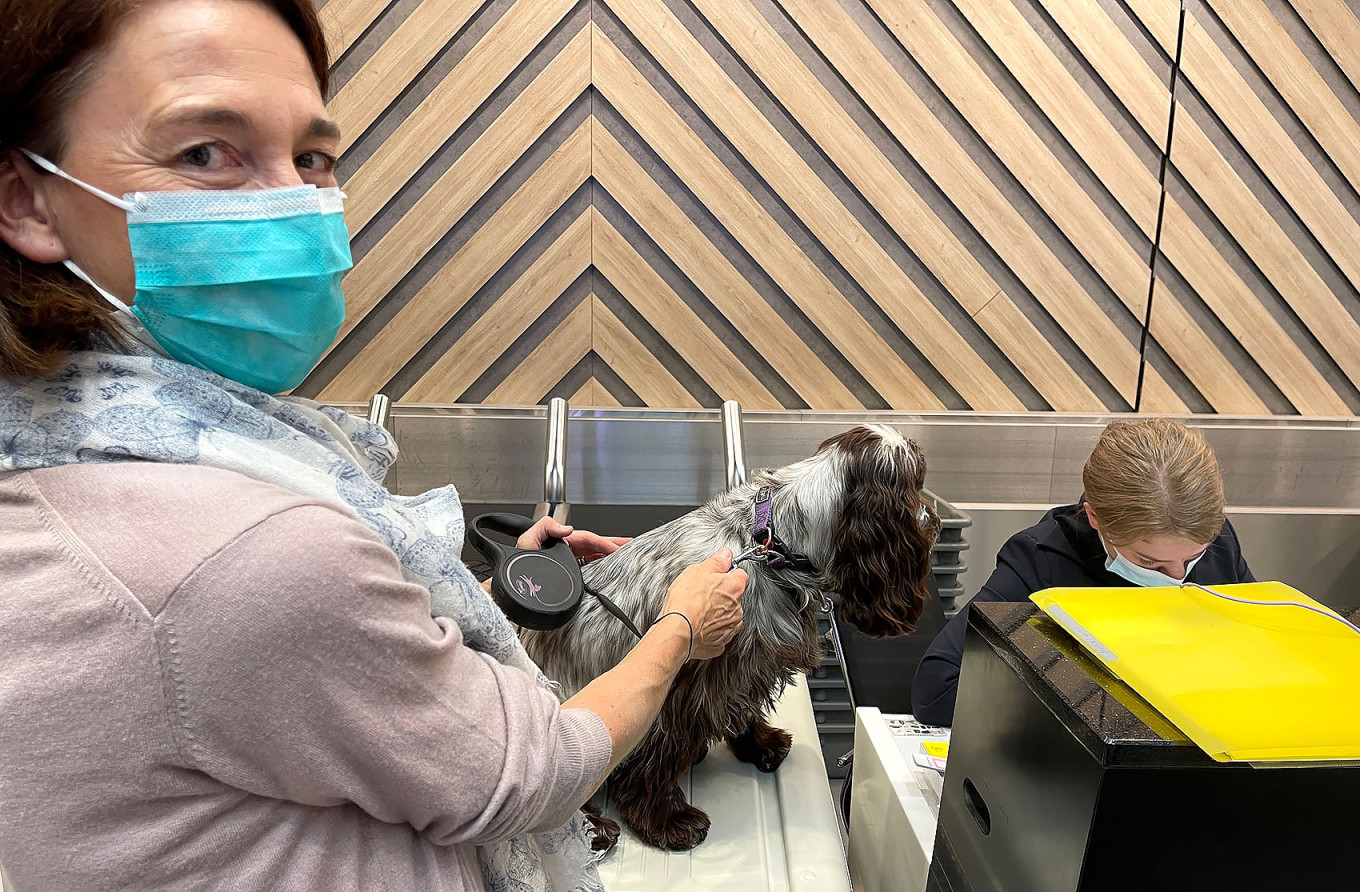
Nemtsov was killed months after he led one of the largest protests in Moscow’s recent history shortly after the 2014 invasion of Ukraine and spoke in front of a sign reading “For Russia and Ukraine Without Putin.”
“It was a shot against democracy itself,” she told The Moscow Times. “For anyone around in the 90s, Nemtsov’s death felt like the end of an era, even though he had already been so marginalized.”
Nemtsov’s proteges Ilya Yashin and Vladimir Kara-Murza became targets for their work towards a democratic future for Russia, with the latter being poisoned twice in the 2010s. Both men were imprisoned after they spoke out against the invasion of Ukraine.
Rainsford covered the careers of both men, as well as many others who shared a vision of a democratic Russia but have never garnered the same international recognition. Following Yashin’s 2015 campaign for a seat in the Kostroma regional Duma, she watched his team rush to destroy copies of a fake newspaper distributed by Yashin’s rivals. She thought the “Kostroma Gay Pravda” — whose front page was plastered with a golden sex toy supposedly found in Yashin’s Moscow apartment — was such an extraordinary example of the suppression of the democratic opposition that she kept a copy.
Many of the political prisoners — Russian and American — who populate Rainsford’s book are finally free. But their ordeals are far from over.
In a press conference the day after their release this month, Yashin and Kara-Murza made it explicit that they were freed without their consent.
“It’s an extra punishment for these people who so openly and firmly wanted to be in Russia and speak from Russia,” she told The Moscow Times.
“They are adjusting to a very different set of circumstances now, and it will be interesting to see how they cope with that, and whether they can somehow kind of unite Russian opposition abroad. But it’s obviously very, very early days,” she said of the backlash to Kara-Murza’s suggestion that sanctions against ordinary Russians were “counterproductive.” He has since said he accepts that Russian society bears some responsibility for the war.
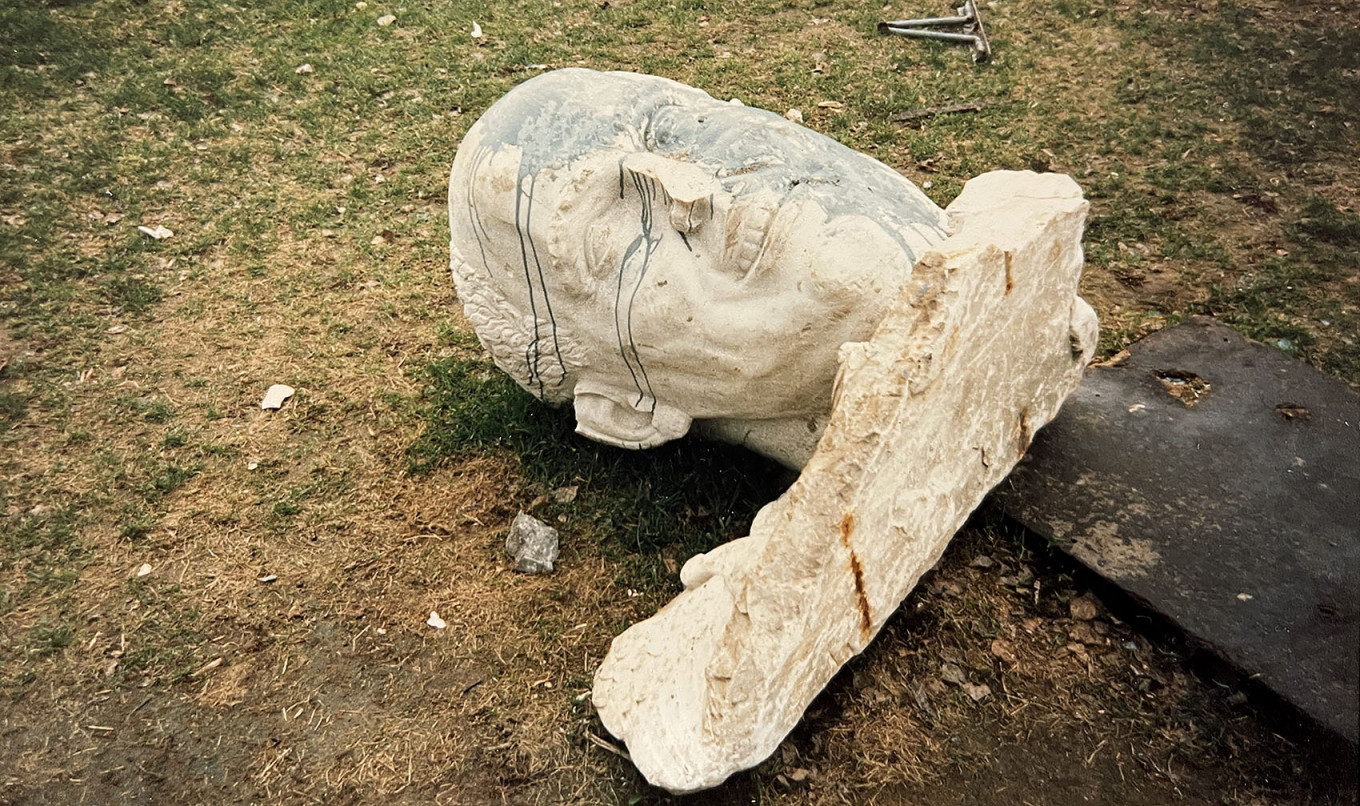
It would be too simplistic to pin hope for a free Russia on one person who is fallible and vulnerable. But if there is hope, Rainsford wonders if it could lie in the thousands of Russians who lined up to pay their respects at Alexei Navalny’s grave earlier this year. Their numbers are small in the grand scheme of things, but when they chanted “no to war” and called for a free Russia, they showed there are still some people willing to put aside their fear of the police and speak out. As Evgenia Kara-Murza once told her, no one can stop the future, whatever comes next.
At a time when some of Ukraine’s supporters demand collective punishment for all Russians to feel the pain of the war, insights like Rainsford’s teach a valuable lesson about how a nation can come to associate democracy with chaos — and be conned into believing that the atrocities in Ukraine that she saw with her own eyes are staged.
A Message from The Moscow Times:
Dear readers,
We are facing unprecedented challenges. Russia's Prosecutor General's Office has designated The Moscow Times as an "undesirable" organization, criminalizing our work and putting our staff at risk of prosecution. This follows our earlier unjust labeling as a "foreign agent."
These actions are direct attempts to silence independent journalism in Russia. The authorities claim our work "discredits the decisions of the Russian leadership." We see things differently: we strive to provide accurate, unbiased reporting on Russia.
We, the journalists of The Moscow Times, refuse to be silenced. But to continue our work, we need your help.
Your support, no matter how small, makes a world of difference. If you can, please support us monthly starting from just $2. It's quick to set up, and every contribution makes a significant impact.
By supporting The Moscow Times, you're defending open, independent journalism in the face of repression. Thank you for standing with us.
Remind me later.

